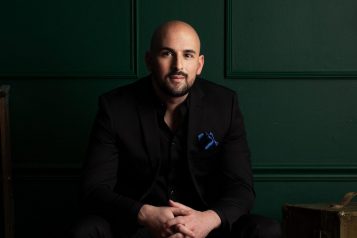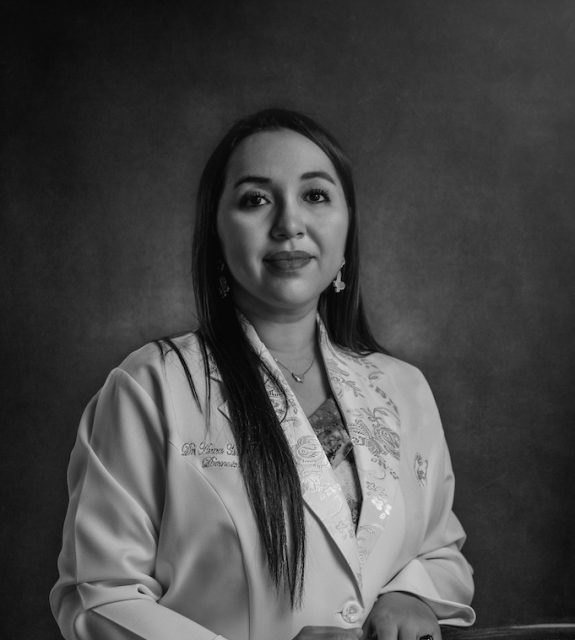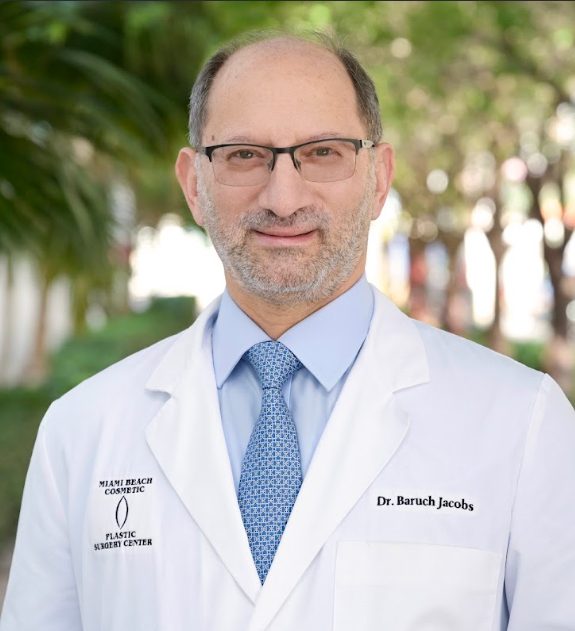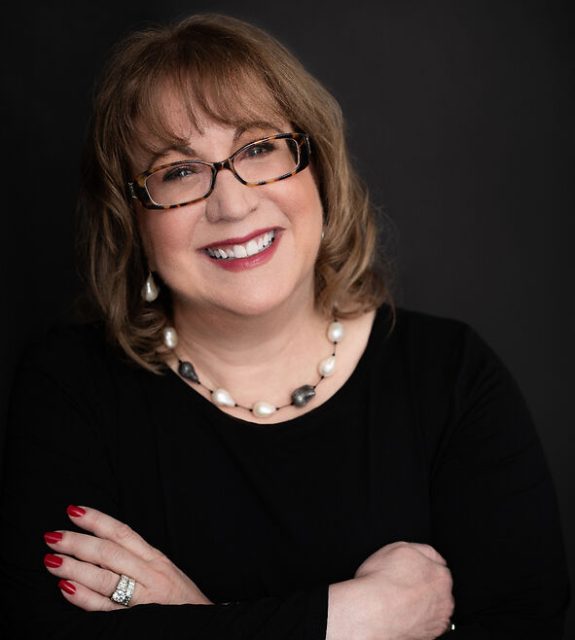
Haute Beauty Editor Brooke Klaiman hosted a discussion with Dr. Mara Weinstein Velez, a representative of the Haute Beauty Network in the Rochester, NY market. The conversation ranged in topics from Dr. Weinstein's interest in dermatology, products she recommends, and skincare regimens to follow.
Mara C. Weinstein Velez, M.D., FAAD is a board-certified dermatologist, and Director of Cosmetics and Laser Surgery at the University of Rochester Medical Center, in Upstate New York. She completed a prestigious Laser, Cosmetic and Dermatologic Surgery fellowship at SkinCare Physicians in Boston, with clinical faculty from the Harvard and Yale Departments of Dermatology and is one of the only Fellowship-trained Cosmetic and Laser Surgeons in Western NY.
Here are some of the highlights from their conversation:
Haute Beauty: How did you get started in the dermatologist field? Personal experiences with skincare?
That is a great question and so chock-full of background. I grew up on the island of Guam, it is a little tiny island in the south pacific, not many people know about it. Growing up I struggled with acne and I tried pretty much anything I could get my hands on. My mom was super passionate about skincare and has the most beautiful skin (I’m sure you have seen her pictures on my page), so I wanted my skin to be like hers and I could not understand why I kept breaking out. In Guam, there was no dermatologist so there was an access problem – I didn’t even know that existed in terms of somebody who could help me. I wouldn’t know what to get, I’d pick everything and try everything. That’s how my interest grew in dermatology.
On the other end of that, as I got into medical school, I also realized that the breath of dermatology is so fascinating. We have the opportunity to not only cure and treat skin cancer, but we also treat children, but we also treat geriatric patients, we look at slides under the microscope, we do surgeries, so there are so many ways to touch a patient through dermatology and that’s really why it resonated with me.
HB: Do you see a lot more people coming in for dermatology appointments since COVID-19?
It has been a pretty steady flow of patients. I have not seen a lot of new patients because of covid, I definitely have heard new concerns because of COVID-19. Primarily, that being the zoom concerns: I look a certain way on zoom and I don’t like it, I notice that this stands out more and this hyperpigmentation on the skin is more visible on zoom.
In a way, it is really nice because it has forced people to take better care of themselves. It has had a ton of positive impact on mental health and now they are taking steps to address something that bothers them.
On the other hand, we have to be careful because we do not want to nitpick every little thing because people can get carried away. I hold that as a personal responsibility to guide patients as to what decisions to make in the office when it comes to cosmetics or tweaking little things, if that is really going to help or if it is getting carried away – I definitely keep a tab on that.
HB: At home, what is the best way to determine that my skin is healthy?
That is a loaded question. We can factor in a few things into that equation. We know that there are telltale signs on your skin of what stressed-out skin looks like or what dehydrated skin looks like. At home, if you are noticing more inflammation, more dryness, more skin sensitivity, you are breaking out a bit more, even if your skin is looking creepier and sort of dehydrated those are all signs of stressed-out skin. That should be your wake-up call to take a second look at your products or to seek help from a dermatologist to try and negate those effects of stress on the skin.
Simple things you can do at home is to start a good skincare regimen. There are some pillars when it comes to a good skin care regimen. Definitely wash your face at least twice a day. If you have sensitive or dry skin, one time a day should be plenty. Look for something that is more on the creamy side so it won’t strip your skin of its natural oils, leaves your skin feeling soft and moisturized when you finish washing.
Staple to any skincare regimen when it comes to healthy skin is antioxidants. That comes in the form of Vitamin C. There are tons of options out there.
Sunscreen. Even if you work in front of a window or you are driving all the time and are not directly in the sun, that can still affect your skin and accelerate signs of aging. Have a routine in the morning that can reverse the effects of aging on your skin.
HB: Why are some people more susceptible to sunspots and hyperpigmentation?
There are a few factors that go into the development of sunspots. First off, not wearing sunscreen. Those examples, I mentioned. People say they don’t go outside but I have three big windows in my office; you have to wear sunscreen to prevent sunspots.
When we see people in their older decades, 50's, 60's, a lot of the sunspots that pop up are from the past it’s just cumulative sun damage peeking through and there are ways that we can help that in the office with laser treatments.
When you talk about hyperpigmentation in acne patients, it can look different on different skin types. On darker skin, hyperpigmentation can look like brown spots leftover after acne eruption. On lighter skin, it can initially look pink and then turn brown. And again, sunscreen is your best friend there to prevent discoloration.
HB: Are there any foods we should stay away from to prevent breakouts?
There are studies supporting that tons of dairy in the diet can lead to breakouts. The second thing is food with glycemic indexes, so foods with refined sugars, carbs. Even fruits like grapes, are very sweet and have a high glycemic index. Consuming a lot of those types of foods can make breakouts worse.
Proteins, if you are having acne on your back or chest. Some of my male bodybuilder patients have a lot of issues with breakouts and oftentimes we nail it down to protein supplements. I can’t site any particular studies that say don’t eat this or that, and you won’t have breakouts but certainly limit your dairy foods and sugars, candy things like that. You should notice an improvement in your acne if that is the root cause.
HB: What’s your go-to skin regimen to keep your skin clear and glowing?
First of all, it is important to know what type of skin you have and how your skin responds to some products. As I was mentioning before, I think that having pillars in your regimen is so important.
Morning: cleanse, vitamin C, sunscreen. You can add things based on your specific skin concerns.
Nighttime: cleanse, use a product that promotes cell turnover (retinoids). If you can tolerate the retinoids, it aids in boosting collagen production, which helps with the glow of your skin and the prevention of fine lines and wrinkles.
I like to always start with prescription low percentage retinoids and then back off based off how patients' skin tolerates it. If you have not seen a dermatologist and you want to start with something simple and over the counter, I recommend using retinol products.
There are so many good skincare lines, I tend to support skincare lines that are backed by science. Alastin, retinol product - has to be purchased through a doctor’s office. Neutrogena and CeraVe have awesome over-the-counter retinol creams.
HB: Would you recommend micro-needling at home?
That comes with hesitation. There is a huge concern about how those drum rolls are sterilized. If you use a good sterilization method and allow the device to dry in between uses and you find that it helps with the brightening of your skin and texture, it’s fine. Be cautious when trying to deliver new products on the skin after micro-needling. We have seen reactions in the office with patients who do it at home.
HB: Do you believe less is more with skincare products?
Yes, I am a firm believer that less is more! I definitely do a skincare audit to start with the basics and then add more, if necessary.
HB: As we transition into the wintertime, what do you recommend to avoid dryness of skin?
For winter skincare, I love to start the moisture sandwich! Cleanse your skin in the morning and don’t dry it off completely. Apply a hyaluronic acid-based serum. On top of that, use a creamy thicker moisturizer. This will lock in and seal the moisture in your skin so it feels hydrated all day. At night, repeat the same process.
In our conversation, we gave the IG Live viewers an opportunity to ask questions regarding their skincare concerns. Here are the questions asked:
IG: Do you offer Telederm appointments?
Yes, we ask you to send pictures first. I find that we waste a lot of time finding and trying products when we can spend the same money to speak with a certified dermatologist that will be the most effective.
IG: What types of products would you recommend for dry skin caused by pregnancies?
Avoid Salicylic acid. If you are acne-prone and it gets worse when you are pregnant. This can lead to dryness.
Avoid Benzoyl Peroxide. Drying but common acne ingredients.
Use Ceramides. They nourish the skin.
Use Oils, for the belly! Sesame Body Oil by Neutrogena - I lived by when I was pregnant.
IG: When pregnant should you avoid treatments?
I don’t think so. I see a lot of patients who are pregnant want to do something for themselves. It’s important to continue self-care as you growing a little human being inside. Part of them being healthy, are you being healthy. My office uses chemical peels that are made out of glycolic acid, which is safe for pregnant women!
IG: Can you recommend a good over-the-counter body wash for extremely dry skin?
I love Olay’s new line for bodywash. It has retinol in it and nourishing/hydrating ingredients. If you are someone who has very sensitive skin you want to avoid products that are heavily fragranced. If that’s the case, Dove Sensitive Skin bodywash. Take note of your skin types before running to the shelf.
IG: What are your top 3 products?
That is a hard question! The top product that I will never put down is my retinoid! I use a prescription from a company called Skin Medicinal, founded by a board-certified dermatologist and it is available to everyone. Mailed from a special pharmacy. What is great about it is that it is tretinoin, which is a retinoid, you can pick your percentage between 0.25-1% and you can add all the ingredients you need.
Watch the entire conversation below:
If Dr. Mara Weinstein Velez did miss any of your questions, please feel free to send her a direct message on Instagram!
For more information, visit Dr. Mara Weinstein Velez's social media:






















